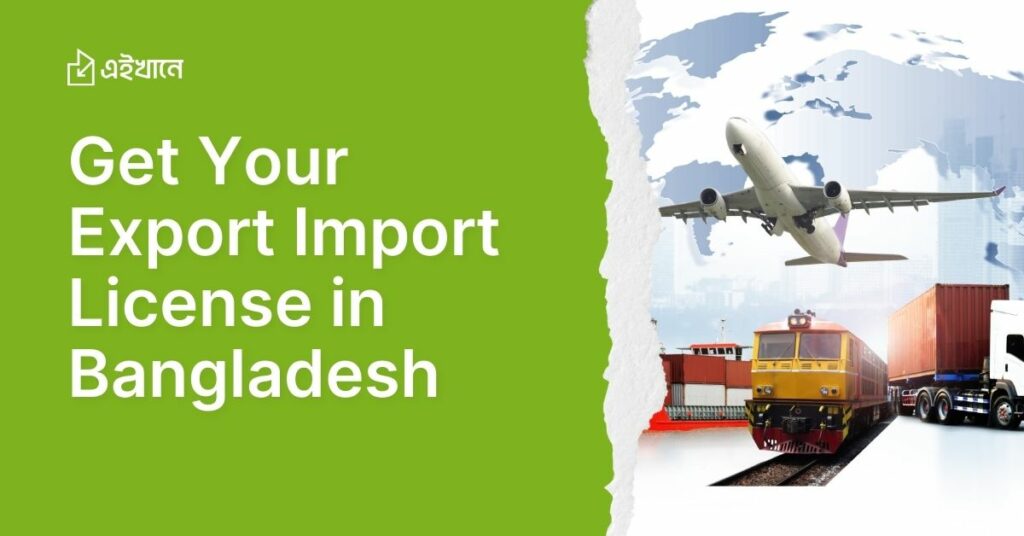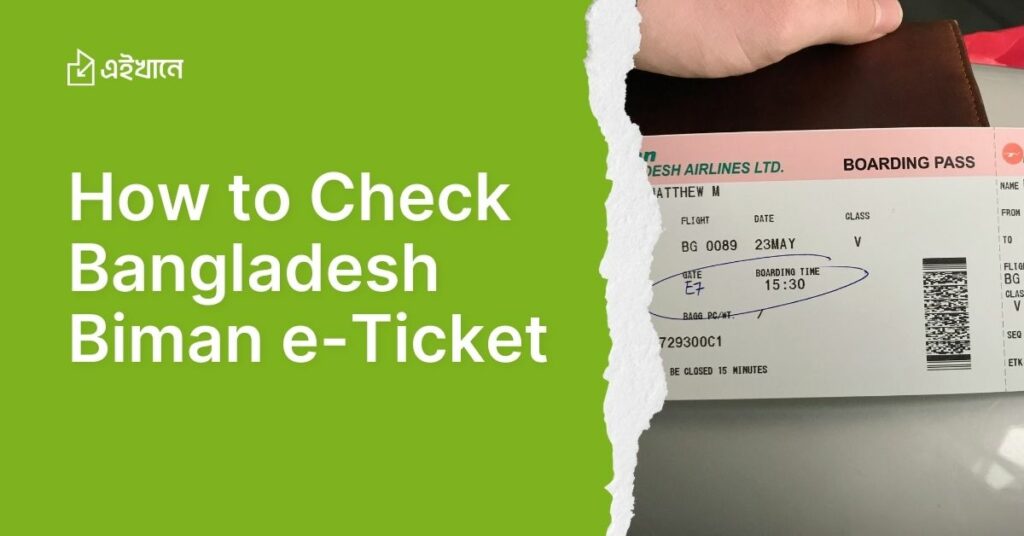How to Apply for an Export Import License in Bangladesh: Requirements and Process
Determine Your Eligibility
Before applying for an export-import license in Bangladesh, businesses must ensure they meet the eligibility criteria established by the Ministry of Commerce. Both individuals and business entities (sole proprietorships, partnerships, or companies) can apply for the license, but they need to have a registered Trade License issued by the city corporation or municipality.
Collect Necessary Documents
The applicant needs to gather several documents before proceeding with the application. Essential documents include copies of the Trade License, taxpayer identification number (TIN), VAT registration, bank solvency certificate, passport-sized photographs, and a national identification card. For companies, additional documentation such as the Certificate of Incorporation and Memorandum of Association may also be required.
Obtain a Banker’s Certificate
An important requirement for applying for an export-import license is obtaining a banker’s certificate. This certificate verifies that the business has an active bank account and is financially solvent. The bank issues this certificate after reviewing the financial standing of the applicant or the business.
Register with the Chamber of Commerce or Trade Association
In Bangladesh, businesses involved in international trade must register with a recognized trade body, such as the Federation of Bangladesh Chambers of Commerce and Industry (FBCCI) or a relevant sector-specific trade association. A membership certificate from these bodies is necessary for the application process.
Submit the Application to the Office of the Chief Controller of Imports and Exports (CCI&E)
Once the required documents are compiled, applicants need to submit their application to the Chief Controller of Imports and Exports (CCI&E) office. The application can be submitted either online via the Digital e-Permit System or in person at one of the CCI&E regional offices. Applicants must fill out the required forms, provide all supporting documents, and pay the applicable fees.
Application Review and Issuance of License
After submitting the application, the CCI&E office reviews the materials to ensure all compliance requirements are met. If the application is in order, the office will issue the license, known as the Import Registration Certificate (IRC) or Export Registration Certificate (ERC), depending on the applicant’s purpose. The processing time typically ranges between 7 and 15 working days.
Renewal and Maintenance of License
Both IRC and ERC licenses in Bangladesh are valid for one year. To continue conducting import or export operations, businesses must renew their licenses annually by submitting an updated renewal form and paying the renewal fee. It’s important for businesses to maintain compliance with tax, customs, and legal regulations throughout the year to ensure smooth renewals.
Documentation Checklist for Obtaining Your Export Import License in Bangladesh
Trade License
One of the primary documents required to apply for an export-import license in Bangladesh is a valid Trade License. This document is issued by the city corporation or municipality where your business operates. Ensure that your business activity includes import or export operations when applying for or renewing your Trade License.
Taxpayer Identification Number (TIN)
You will need to provide your Taxpayer Identification Number (TIN) as part of the application process. If you’re applying as a sole proprietor, your personal TIN should suffice. For companies, the corporate TIN will be required. This document shows your compliance with tax obligations in Bangladesh.
VAT Registration Certificate
Another important document is the VAT Registration Certificate issued by the National Board of Revenue (NBR). It confirms that your business is registered for Value Added Tax, a mandatory requirement for conducting both import and export activities in Bangladesh.
Bank Solvency Certificate
A bank solvency certificate is needed to prove that your business has sufficient financial standing and an active bank account. You can obtain this document from your business’s bank after they review your financial statements. This certificate reassures authorities that your business is financially capable of engaging in international trade.
National ID Card or Passport
For individual applicants or owners of businesses, providing a copy of their national identification card (NID) or passport is mandatory. In the case of partnerships or companies, the NID or passport copies of all partners or directors may be required to complete the application.
Passport-Sized Photographs
Applicants must also submit passport-sized photographs (usually two to three copies) as part of the application package. These photographs are used for identification purposes in your official records with the licensing authorities.
Certificate of Incorporation and Memorandum of Association (For Companies)
If you are applying as a company rather than an individual or sole proprietor, you will need to include a copy of the Certificate of Incorporation issued by the Registrar of Joint Stock Companies, along with the Memorandum and Articles of Association. These documents establish your company’s legal identity and describe its business activities.
Chamber of Commerce or Trade Association Membership Certificate
Membership in a recognized trade body, such as the Federation of Bangladesh Chambers of Commerce and Industry (FBCCI) or another sector-specific association, is a prerequisite. The membership certificate proves your affiliation with a trade organization that oversees or advocates for your industry and provides an additional layer of credibility during your application process.
Application Forms and Payment Receipts
Finally, ensure that all relevant application forms provided by the Chief Controller of Imports and Exports (CCI&E) office are accurately filled out. Be ready to submit proof of payment of the applicable fees, which can vary depending on whether you’re applying for an Import Registration Certificate (IRC) or Export Registration Certificate (ERC). Keeping copies of all payments is essential for reference and tracking.
Registration Steps and Fees for Export Import License in Bangladesh
Step 1: Obtain a Trade License
The first step to obtaining an export-import license in Bangladesh is securing a valid Trade License from your local city corporation or municipality. Ensure that the business activities listed on your Trade License include imports or exports, as appropriate, to avoid any discrepancies during the licensing process.
Step 2: Apply for a TIN (Taxpayer Identification Number)
Once you’ve obtained your Trade License, the next step is acquiring a taxpayer identification number (TIN) if you don’t already have one. Whether applying as an individual or a company, this step is essential for establishing your tax obligations with the National Board of Revenue (NBR), a necessary prerequisite for conducting international trade operations.
Step 3: Prepare Your Application Documentation
Compile all the required documentation such as your VAT registration certificate, bank solvency certificate, national ID or passport, passport-sized photographs, and membership certificate from a Chamber of Commerce or trade association. For companies, you’ll also need to include your Certificate of Incorporation and Memorandum of Association.
Step 4: Submit Your Application via CCI&E
When all documents are prepared, submit your application to the Chief Controller of Imports and Exports (CCI&E) office. You can choose to submit your application online through the Digital e-Permit System or in person at one of their regional offices. Ensure that the application forms are accurately filled out and all necessary documents are attached.
Step 5: Pay the Required Fees
During the submission process, you will be required to pay applicable fees. The cost of obtaining an Import Registration Certificate (IRC) or Export Registration Certificate (ERC) depends on the scale of your business. The fees are generally calculated based on the authorized capital of your business, with small to medium enterprises typically paying lower fees compared to larger corporations.
Registration Fees for IRC and ERC
The registration fees for obtaining an Import Registration Certificate (IRC) or Export Registration Certificate (ERC) can vary depending on factors like business type and size. Approximate fees for small to medium businesses usually range from BDT 5,000 to BDT 10,000, while larger corporations may expect to pay more. Ensure to keep copies of all payment transactions for future reference.
Fee Payment Methods
Fees can be paid through several channels including bank drafts, payment orders, or direct deposit to government accounts. Some online application platforms may accept payments via electronic funds transfer (EFT) or mobile banking services. After payment, collect and keep your receipt as proof, as it will be required for completing your registration.
Post-Submission Follow-Up
After submitting your application and paying the required fees, the CCI&E office will review the details. This review typically takes between 7 and 15 working days. If any discrepancies arise, you may be asked to provide additional documentation or correct errors. Once approved, your IRC or ERC will be issued, officially authorizing you to begin import or export operations in Bangladesh.
Annual Renewal Fees
Both the IRC and ERC licenses are valid for one year, after which they must be renewed to continue operations. The renewal fees are generally similar to the initial registration fees and depend on the size of the business. It is important to keep track of the expiration date and submit your renewal application along with payment before the license lapses to avoid any penalties or interruptions in business.
Common Mistakes to Avoid When Applying for Export Import License in Bangladesh
Submitting Incomplete or Incorrect Documentation
One of the most common mistakes applicants make is submitting incomplete or incorrect documents. Each document, such as the Trade License, TIN certificate, and bank solvency certificate, must be valid and up-to-date. Inaccurate information on forms, missing signatures, or outdated documents can lead to delays or denial of your application. Always double-check that all paperwork is in order before submission.
Not Registering with a Trade Body
In Bangladesh, it is mandatory to register with a chamber of commerce or a relevant trade association before applying for an import-export license. Failing to submit a valid membership certificate from a recognized trade body can result in an incomplete application. Ensure that you are affiliated with a credible organization like the Federation of Bangladesh Chambers of Commerce and Industry (FBCCI) well in advance.
Ignoring License Renewal Deadlines
Another costly mistake is neglecting the annual renewal of your Import Registration Certificate (IRC) or Export Registration Certificate (ERC). Many businesses overlook the renewal deadlines, risking the suspension of their trading activities. Set reminders or use an automated tracking system to ensure timely renewal to avoid penalties or interruptions in your business operations.
Underestimating the Bank Solvency Requirements
Many applicants underestimate the importance of the banker’s certificate, assuming that basic account activity will suffice. The solvency certificate requires proof that your business has adequate financial standing to sustain import or export trade. Failing to demonstrate this could delay your application or even lead to rejection. Consult your bank early in the process to ensure you meet all financial requirements.
Incorrect Fee Payment
Fee-related issues, such as underpayment, overpayment, or incorrect payment methods, can cause significant delays. Ensure that you are aware of the current fee structure, which may vary based on the size of your business. If submitting online, confirm that the transaction has been successful, and always keep a receipt as proof of payment to avoid complications during the application review.
Filing Incorrect Business Activity on the Trade License
A common error is having a Trade License that does not list import/export as a business activity. If your license only specifies a generic category for business operations, your application could be rejected. Before submitting your application for an IRC or ERC, carefully review your Trade License to confirm that international trade activities are explicitly mentioned.
Insufficient Follow-Up After Submission
After submitting your application, some applicants fail to track its progress. In case of discrepancies or additional document requirements, prompt follow-up can help resolve issues faster. Keep regular contact with the CCI&E office to stay updated on the status of your application and avoid unnecessary delays in obtaining your licenses.
Not Understanding VAT and Tax Compliance
Non-compliance with local tax laws, especially those related to VAT, is another common issue. Applicants sometimes fail to provide accurate taxpayer information or overlook their VAT registration, which is a mandatory requirement for engaging in import or export activities. Ensure that your TIN and VAT certificates are current and comply with Bangladeshi tax regulations to avoid setbacks in your application process.
Timeline and Renewal Process for Bangladesh Export Import License
License Validity Period
Once issued, the Import Registration Certificate (IRC) or Export Registration Certificate (ERC) in Bangladesh is valid for one year. This means that businesses holding these licenses must renew them annually to continue conducting import or export activities without disruptions. It is crucial to keep track of the expiration date to avoid lapses in your trading authority.
When to Apply for Renewal
The renewal process should ideally begin well before the license’s expiration date. It’s recommended to apply for renewal at least 30 days prior to the expiry to ensure there’s ample time for reviewing and processing the application, and to prevent any sudden suspension of business activities. Applying late or after the expiration could lead to additional penalties or a temporary halt in trading operations.
Documentation Required for Renewal
To renew your IRC or ERC, you’ll need to submit an updated set of documents. These generally include:
– A completed renewal form provided by the CCI&E office.
– A valid Trade License.
– An updated bank solvency certificate.
– Proof of continued membership with a relevant trade body (e.g., FBCCI).
– Payment receipt for the renewal fee.
Ensure all documents are up to date and accurately filled out to prevent delays in the renewal process.
How to Submit a Renewal Application
The renewal application can be submitted either online or in person. For online submissions, the Digital e-Permit System is available on the CCI&E portal. If you prefer physical submission, you can visit a regional office of the Chief Controller of Imports and Exports (CCI&E). Attach all required documents along with the completed renewal form and the proof of payment for the applicable fees.
Renewal Fees
Renewal fees typically correspond to the initial registration fees for the IRC or ERC. Small and medium-sized enterprises may expect costs ranging from BDT 5,000 to BDT 10,000, while larger corporations might pay higher fees. Be sure to check the current fee structure and make your payment through accepted methods such as bank drafts, payment orders, electronic funds transfers, or mobile banking.
Consequences of Missing Renewal Deadlines
Failing to renew your license before its expiration can lead to severe consequences for your business. Not only will your IRC or ERC be temporarily suspended, but you may also face penalties during the renewal process. Trading activities will be put on hold until the license is renewed, which could result in lost business opportunities. Therefore, it’s essential to set reminders and plan ahead to avoid missing the annual renewal deadline.
Post-Renewal Confirmation
After submitting the renewal application, the CCI&E office will review and process it. Depending on the workload and completeness of your documentation, this review may take between 7 and 15 working days. Once your renewal is approved, you will receive a confirmation, allowing you to continue your import or export activities seamlessly for another year. Always verify that your updated license details are registered accurately to avoid future complications.


